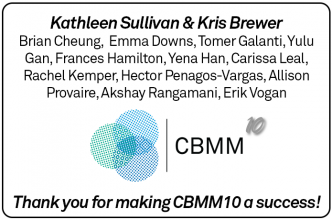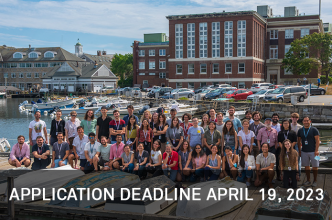Home Page Spotlights
A journalist and a pioneer of artificial intelligence talk about the dawn of a new "general" technology which, like electricity or the computer, is destined to transform society, the economy and daily life, with a load of risks and opportunities.
A sincere thank you to all speakers and attendees of 'CBMM10 - A Symposium on Intelligence: Brains, Minds, and Machines.' And an extra thank you for those who made it possible! ~Tomaso Poggio
Research on Intelligence in the Age of AI: On which critical problems should Neuroscience, Cognitive Science, and Computer Science focus now? Consider society, industry and science point of view.
Language and Thought: Is natural language the language of thought? LLMs as models of human language and thought. Are LLMs aligned with neuroscience and with human behavior? What is still missing?
Neuroscience to AI and back again: Review of progress and success stories in understanding perception in primates and replicating it in machines. Key open questions. Synergies. CNNs vs transformers as models of cortex.
Interacting with the physical world: Which aspects of human intelligence require embodiment? Motor control: was it the key for development of human intelligence? Is embodiment necessary for consciousness?
Our symposium will focus on the topic of intelligence, one of the greatest problems in science and engineering and a key to our future as a society. The symposium will look at the past, in particular at the advances achieved by CBMM over the past 10 years
Three graduate students forged a path to the same Picower Institute lab through participating in the MIT Summer Research Program in Biology and Neuroscience.
Pictures conjured by the mind’s eye lack detail, despite how vividly you picture them
Researchers used fMRI to test ideas about complex decision-making
Through her organization, Sprouting, Taylor Baum is empowering teachers to teach coding and computer science in their classrooms and communities.
Using insights into how people intuit others’ emotions, researchers have designed a model that approximates this aspect of human social intelligence.
Artificial intelligence seems to have gotten a lot smarter recently. But with the debut of powerful new chatbots like ChatGPT, millions of people have begun interacting with AI tools that seem convincingly human-like.
The second major Sprouting event sponsored by the National Science Foundation, and the MIT Center for Brains, Minds, and Machines. This Hackathon will be a program given to spark interest in Science, Technology, Engineering and Math (STEM) in Puerto Rico.
An intensive three-week course will give advanced students a “deep end” introduction to the problem of intelligence – how the brain produces intelligent behavior and how we may be able to replicate intelligence in machines.















